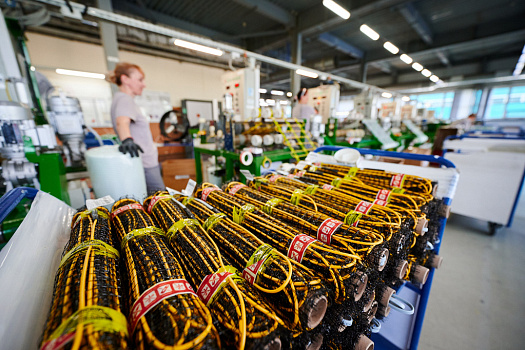Import substitution of software and digital technologies: the experience of migrating an industrial enterprise to domestic software
n accordance with the national program "Digital Economy of the Russian Federation," by 2024, the share of solutions from Russian developers in state organizations should be at least 70%, and in corporations, at least 50%. By 2030, Russian industry is expected to almost completely switch to Russian software, with its share in certain areas expected to reach 90% or more.
What challenges might industrial enterprises face when migrating to domestic solutions? What are the advantages? How to choose the right Russian software alternative? How involved are the developers?
Commented by Vladislav Mashura, Head of the IT Department at TeploluxeDo the current IT industry offerings meet the needs of enterprises?
Yes, they do. The Russian market has long had ERP systems and MES systems designed to automate business processes and enterprise resource management. If companies are using European software such as SAP, they may face some difficulties during the transition. However, the market already has many case studies of transitioning from SAP to ERP that are openly discussed in professional communities.
There are no fundamental problems here.What challenges do developers and enterprises face in this segment?
The main challenge for enterprises in this segment is finding developers because the market is currently shallow. Most European companies are transitioning from SAP to other alternatives and have simply scooped up all the available talent. Therefore, the main problem is finding qualified personnel ready to carry out such projects. On the other hand, there are always contractors and partners ready to help with this. We are currently actively working with two certified 1C partners, which cover most of our tasks related to optimizing our ERP system.
Import substitution of information technologies for industry: how do you assess it at the moment, what are the obstacles, and what are the successful cases?
There are certainly challenges here. Most of these challenges are related to user experience. People are used to working with Microsoft products: the interface, functionality, collaboration, etc. They may have a fear of the unknown, the fear that they have just learned to work with one product, and now it is another, with no guarantee it won't change again. But changes now are normal; it is a balance of opportunities and risks. Some changes bring us new opportunities and experiences, and we need to embrace and try them. It is not necessary to settle on one solution. It is important to maintain a broad view of solutions because there are many on the market. Choosing the right one immediately is difficult because it needs to be vetted not only by the IT team, which looks at IT parameters, or the information security team, but also by the users. Only in connection with users and the business can we find a solution that might even be more appealing than the previous one.
Within our company, we successfully migrated from Microsoft to Yandex, and we saw that domestic cloud solution developers are ready to accommodate Russian businesses and provide amazing support. Besides Yandex, Bitrix24 is also a great product that helps almost seamlessly transfer processes to domestic servers. This is our second successful case, where we quickly transferred the automation of our communication and collaboration.
Another important nuance in import substitution is time. It is important to understand that this does not happen instantly, and preparation for migration is necessary. You need a plan, you need to test the solution, and jointly with users, choose the most optimal option. It is important to listen to user needs and organize effective work with the developers of the respective solutions. We see a lot of effort on their part to help us and the business so that the migration happens as quickly and efficiently as possible with minimal losses.

